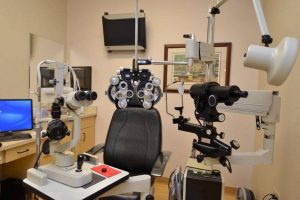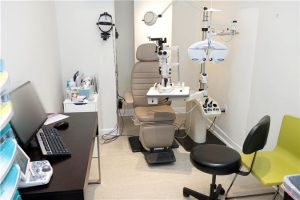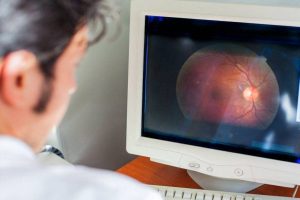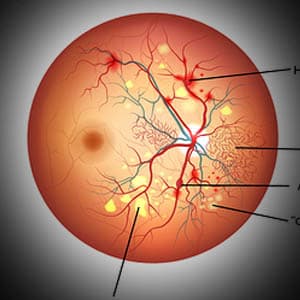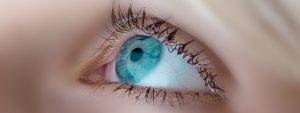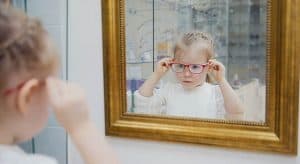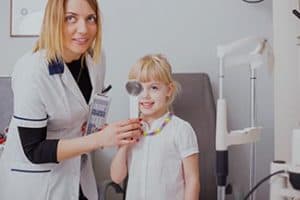Allergies and Contact Lenses: Part 2 Q
Pollen is not the only cause of allergies that can affect your eyes and make wearing contact lenses uncomfortable. Dust, mold, smoke, and pet dander
Read MoreTop 8 Tips for Allergies and Contact Lenses
Do you suffer from allergies, but also want to wear contact lenses? Pollen is not the only cause of allergies that can affect your eyes
Read MoreEyes and Herpes: Q&A
Herpes eye infection requires urgent medical attention. Eye herpes, also known as herpes keratitis, is a viral infection of the eye caused by the herpes
Read MoreHow Does Herpes Affect the Eyes?
Eye herpes affects over 1.5 million people around the world each year. The most common type of eye herpes is called epithelial keratitis, which tends
Read MoreDry Eye or Eye Infection?
Are your eyes red and irritated? Is it dry eyes or an eye infection? To help you out, here are the key differences between dry
Read MoreAlbinism and Low Vision
Albinism affects at least 1 in 20,000 of the population. Ocular albinism affects the eyes, possibly causing dramatic loss of visual function and impact on the quality of life.
Read MoreReading Tips For People With Low Vision
Approximately 3.22 million people in the United States have a visual impairment. For people with a visual impairment, reading is often one of the most
Read MoreGlaucoma, Tunnel Vision and Low Vision
Glaucoma causes ‘Tunnel Vision’ and is one of the leading causes of blindness worldwide. Glaucoma is an eye diseases that damages the optic nerve, leading to permanent vision loss. The most common type of glaucoma shows no early warning signs, and can only be detected during a comprehensive eye exam. If left untreated, glaucoma can cause peripheral vision loss and even permanent blindness.
Read MoreTop Home Tips for Low Vision
One in six adults over age of 45 and one in four adults over age 75 has low vision. Having low vision – reduced vision that can’t be improved with glasses, contact lenses, medication or surgery – can make it difficult to perform day-to-day tasks. Fortunately, there are many things a person with low vision can do to remain independent and do the things they enjoy and love.
Read MoreVision Therapy for Concussions
Up to 90% of people experience vision problems after experiencing a concussion. The symptoms that persist following a concussion are collectively called Post Trauma Vision
Read MoreGlaucoma: ‘The Silent Thief of Sight’
Did you know that rock star Bono from U2 has glaucoma? U2’s Bono is not alone, at least 3 million North Americans have glaucoma, but only 50% know they have it! In 95% of glaucoma cases, it starts off asymptomatic and by the time the condition is noticed, the vision loss is irreversible. That’s why regular eye exams are so crucial, even if you don’t suspect a problem.
Read MoreCataracts: Top 5 Myths and Facts
Have you been told you have cataracts, but not sure about the myths and facts? Here are the top 5 myths and facts about cataracts.
Read MoreWhat to Do Before an Eye Exam?
About to come in for your eye exam? To get the most out of your visit, start preparing with these 4 tips. If you’re experiencing
Read MoreCan Sugar Affect Eye Health?
We all enjoy a sweet treat now and then, but too much sugar in our diet can come at a price. Here’s how eating excessive
Read MoreCan Sleep Apnea Affect Your Eyes?
Sleep apnea can affect not only your physical health, but can have serious consequences for your eyes and vision too. If you have sleep apnea,
Read MoreWhy Are Eye Exams Important?
Are Eye Exams Important? Yes! Many eye conditions, in their early stages, have no obvious signs or symptoms, so the annual exam is often the only way to detect eye conditions early. Since there are often no signs or symptoms, regular comprehensive eye exams are key to maintaining good vision and healthy eyes.
Read MoreGlaucoma: Can Meditation Help?
Could meditation be the next glaucoma ‘wonder drug’? Can adding meditation to your day help manage your glaucoma? What is Glaucoma? Glaucoma is a common
Read MoreShould I Buy Glasses Online?
While buying glasses and contact lenses online may seem enticing, there are many factors to think about before clicking that ‘buy’ button. Shopping online can seem to save time and money and can be extremely convenient, done from virtually anywhere at any time.
Read MoreLASIK Co-Management
The combined care of your eye doctor with the LASIK surgeon will ensure you achieve the optimum vision. According to Market Scope, around 10 million
Read MoreEyes and Obesity
Obesity is a global medical epidemic, research clearly shows the direct correlation between obesity and eye diseases. Studies show that obesity increases the risk of
Read MoreScience Needs Compassion
Have you ever wondered if the smile of a nurse or the bedside manner of a doctor actually increase the chances of positive treatment results?
Read MoreLASIK Eye Surgery: 5 Myths and Facts
Here’s the most common myths and facts on laser eye surgery. While LASIK eye surgery has become the most popular refractive surgery in the U.S, there are many misconceptions regarding this procedure that prevent people from even discussing LASIK with their eye doctors.
Read MoreWhat to Look For in a Low Vision Magnifier?
Asking yourself these questions before deciding on a low vision device to ensure you will gain from your low vision aid. Experiencing life with low
Read MoreLow Vision In Children
Many children suffer with vision loss, but there are a range of low vision aids that can give them the best chance to engage with the world around them. There are a number of conditions that can cause vision impairments in children. While some of these conditions can be treated in early childhood, many can result in low vision or even total blindness.
Read MoreHow Can a Developmental Optometrist Help?
Developmental optometrists believe that vision can be developed and improved through a learned process. A developmental optometrist, also called a behavioral optometrist, focuses on the
Read MoreThe Vision Coach
Authors: Dr. Alex and Patti Andrich Vision Development Team Has your coach ever told you to ‘keep your eye on the ball’? Winning coaches are
Read More4 Ways Diabetes Can Affect Your Vision
Diabetes can increase your risk of eye disease and permanent vision loss. Diabetes affects the way your body regulates glucose (sugar), and prevents the glucose
Read MoreA Deeper Understanding of Diabetic Retinopathy
Diabetic retinopathy is the leading cause of vision loss among people with diabetes. If you have been diagnosed with diabetes, it is critical to ensure
Read MoreHow to Insert and Remove Scleral Lenses
New to scleral lenses? Here’s a beginner’s guide to inserting and removing scleral lenses. Scleral lenses are larger than the traditional hard or rigid gas
Read MoreCommon Contact Lens Problems
While wearing contact lenses is a safe alternative to eyeglasses, they can come with problems that you may not expect— especially if you are a new contact lens wearer. Here are some of the most common contact lens problems, and how to avoid them.
Read MoreDry Eye and Menopause
Approximately 61 percent of perimenopausal and menopausal women are affected by dry eyes. Many women during menopause suffer with dry eyes. During menopause, the body
Read MoreHow Do Anti-VEGF Injections Work?
What is VEGF? Vascular endothelial growth factor (VEGF) is a protein in your body that stimulates the growth of new blood vessels needed for healing—
Read More5 Tips to Prevent Diabetic Retinopathy
Diabetic retinopathy affects over 30 percent of people with diabetes. Follow these 5 tips to reduce your risk of life-long vision loss.
Read MoreMyopia Management FAQs
Q1: What is myopia? A: Myopia is a refractive error, or a vision condition that affects the ability to see distant images or objects clearly.
Read MoreDiabetic Macular Edema
Diabetic macular edema occurs when damaged blood vessels from the retina leak fluid into the macula, the center of the retina. Diabetic macular edema causes the macula to swell and thicken, resulting in distorted vision.
Read MoreWhat is Diabetic Retinopathy?
Diabetic retinopathy is a serious sight-threatening complication of diabetes that can lead to blindness. This ocular disease is caused by high levels of sugar in the bloodstream and results in progressive damage to the light detecting retina responsible for sending visual signals to the brain.
Read MoreOcular Oncology
What is ocular oncology? Ocular oncology involves the diagnosis and treatment of all tumors that occur in or around the eye— tumors of the eyelid,
Read MoreGuide to Eye Conditions
Early detection of most eye conditions can ensure you maintain clear sight and enjoy years of good eye health. Have you been told you have an eye disease or need eye surgery? There are 4 main eye diseases, and many others than can impact your vision.
Read MorePurchasing Contact Lenses Online?
Purchasing contact lenses from an online supplier is tempting, but may end up costing you more in the long run. The latest trend in purchasing contact lenses involves ordering from online retail suppliers. While it may seem appealing to have your contact lenses shipped straight to your door, unfortunately, there are many disadvantages to purchasing contact lenses online
Read MoreOptical Frames
Shopping for eyeglass frames can be quite overwhelming… but also lots of fun! Eyeglasses nowadays come in a variety of styles, shapes, colors, and materials— metal, plastic, and even natural wood. Optical stores are filled with rows and rows of frames, manufactured by popular brands and designers to suit every taste and unique fashion sense.
Read MoreWhat Are ‘Low Plus’ Lenses?
Why did your eye doctor prescribe ‘low plus’ lenses for your child? Low plus lenses, like their name suggests, have relatively low lens powers usually +0.50, +0.75 or +1.00. These powers are considered ‘low’, but may have a considerable benefit for your child’s reading and school grades.
Read MoreChildren’s Eye Emergencies
What is an eye emergency? An eye emergency is any situation that poses a threat to a child’s eye health or vision. Eye injuries account
Read MoreA Guide to Eye Infections
Up to 1 in 8 of all children will have an eye infection each year. Parents should be aware of the symptoms of an eye infection to enable prompt identification and treatment. Eye infections can be serious and may cause permanent vision loss. Effective treatment is always needed, especially when bacteria, viruses, or fungi invade the eye or the surrounding areas. The most common eye infections that affect children are called Viral and Bacterial Conjunctivitis— both highly contagious.
Read MoreShould I See an Optometrist or Ophthalmologist?
Your eye care team Ophthalmologists, optometrists and opticians are the three main professionals included on the ‘eye care team’. While each profession plays an important
Read MoreEye Exams for Children
Eye doctors utilize specific clinical and diagnostic tools and assessments to determine your child’s eye health and visual abilities. Since many learning skills are dependent on the strength of visual skills such as binocular vision, accurate eye movements, the ability to see distant objects, etc., doctors recommend that children have their first eye exam at age 6 months.
Read MoreThe 4 Frequent Eye Conditions
Have you been told you have an eye disease or need eye surgery? This guide will help you understand the 4 most common eye conditions:
Read MoreAdvanced Diagnostics
Many ocular diseases develop without any noticeable symptoms. Advanced diagnostic equipment allows doctors to detect signs of ocular disease before symptoms are present —preventing significant and permanent impact on the vision, and enabling early treatment to best manage the disease.
Read MoreChoosing an Optometrist
When deciding on an eye doctor it is important to look for a reputable optometry practice that will meet all of your ocular health and vision needs. A qualified eye care professional will examine, treat, manage, and monitor your ocular health and vision, ensuring you enjoy a life of clear vision.
Read More









